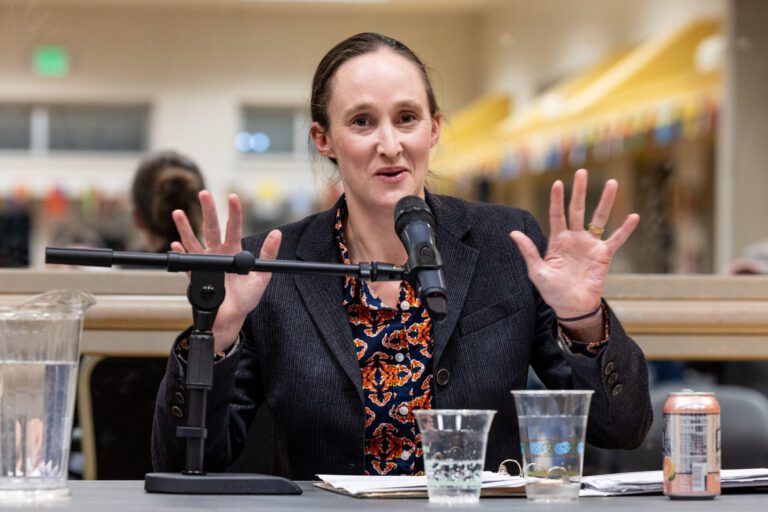Seattle Elects Socialist Mayor: Katie Wilson’s Surprising Victory
In a stunning upset, Katie Wilson, a socialist candidate, has emerged as Seattle’s new mayor, defeating incumbent Bruce Harrell. Her platform, reminiscent of New York’s Zohran Mamdani, emphasizes increased homeless shelters and a local capital gains tax aimed at generating "progressive revenue" from the city’s wealthier residents.
A Groundbreaking Campaign
Wilson’s victory signals a significant shift in Seattle politics, showcasing a growing dissatisfaction with establishment Democrats. With approximately 1,320 mail-in ballots remaining to be counted, Wilson’s lead has rendered Harrell’s chances of reelection mathematically impossible.
"This campaign was driven by a deep belief that we need to expand the table to include everyone in the decisions that impact their lives," Wilson stated. “That is what we will be working to do every day as we set up this new administration.”
Mail-In Ballot Trends Play a Role
Notably, Wilson was trailing Harrell by about seven percentage points on Election Day. Historically, mail-in ballots tend to favor progressive candidates in Seattle, contributing significantly to her last-minute surge. According to reports from Axios, this pattern might have played a pivotal role in her win.
Political Background of Katie Wilson
-
Founder of Advocacy Group: In 2011, Wilson co-founded the Transit Riders Union, which has been influential in advocating for economic populism in Seattle. This included campaigns supporting taxes on high-earning corporations, such as Amazon.
-
No Prior Political Office: Unlike Harrell, who served as a city councilor for over a decade, this is Wilson’s first foray into elected office.
- Emphasis on Diverse Needs: Her platform focuses on transportation, public services, and affordability, which resonate strongly with many Seattle residents.
Personal Touch: Acknowledging Support
In interviews, Wilson candidly shared that she received financial help from her parents, both professors in New York, to cover child care costs for her daughter.
"It just speaks to how expensive and unaffordable it is, right?" she remarked during an interview with KUOW-FM. "If you’re lucky enough to have parents who can pitch in a little bit, that’s not something to be embarrassed about."
Key Proposals and Policies
Wilson’s administration promises to focus on crucial social issues:
-
Emergency Homeless Shelters: She has plans to build 4,000 emergency homeless shelter units, estimating a cost of at least $500 million.
-
Social Housing Bonds: A proposed $1 billion bond would aim for “union-built” social housing to ensure affordability.
- Local Capital Gains Tax: Wilson also seeks to implement a local capital gains tax, in addition to Washington state’s existing tax, to generate funds for social programs.
Challenges Ahead
Despite being one of the wealthiest cities globally, Seattle has recently seen a decline in its millionaire population, losing 1,100 in the past year. This is largely attributed to new wealth taxes aimed at addressing a state budget shortfall of nearly $16 billion.
Conclusion
Katie Wilson’s mayoral victory embodies a significant political realignment in Seattle, reflecting an increasing appetite for progressive policies that prioritize social justice and community welfare. As her administration gears up, the focus will be on implementing her ambitious agenda while addressing the pressing needs of Seattle’s residents.
To follow Seattle news and updates on Wilson’s policies, stay tuned to reputable news outlets and community forums. Explore more about progressive taxation methods, socio-economic initiatives, and urban development strategies through relevant resources online.


